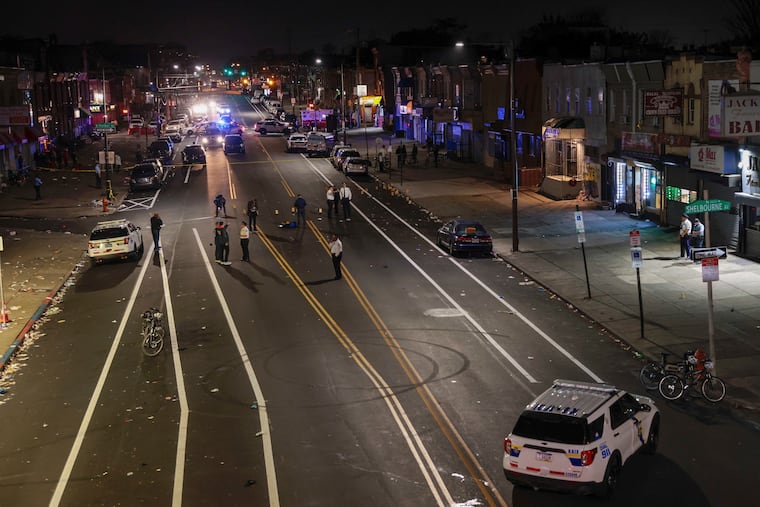Curfews won’t help stem gun violence. Here are a few things that will. | Editorial
Instead of rounding up teens, City Council must support interventions that work, and hold the mayor, the police, and the district attorney accountable.

Given the scale of Philadelphia’s gun violence epidemic, the temptation to do something — anything — that could help curb the violence is understandable. But even if doing “something” makes us feel better, it doesn’t mean it’s doing any good.
Joining City Council’s unproductive gun buyback strategy, a method experts have long called ineffective and wasteful, is a permanent 10 p.m. curfew for teenagers. Experts say it won’t work, either. If anything, it will further strain the relationship between police and the city’s youth. We agree.
Mayor Jim Kenney should follow through on his stated misgivings and veto this legislation.
» READ MORE: Though well-intentioned, gun buyback programs miss the mark | Editorial
Defenders of the curfew cite the need to send a message. They insist that despite their lack of measurable efficacy, curfews are worth it if one life is saved. Curfew violations also are less punitive than in the past. The associated fine has been removed, and teens are either taken home or to community evening resource centers, which are meant to be safe spaces.
Still, young people will be detained, potentially searched, and then forced to ride in the back of a police car. All this simply for being outdoors at a time when common teenage activities — such as going to a Sixers game or a concert — may still be happening. In addition, police officers will be forced to take time away from more productive activities to ferry teens around.
As David Fisher, head of the National Black Police Association, has said, “How are the relationships with police going to get better when you’re making them take 16- and 17-year-olds off of the street who don’t want to go?”
Like gun buybacks, curfew violations are a popular crime-fighting strategy because they have very little political cost. Most of the teenagers affected are not likely to vote in next year’s elections. If Council wants to fight gun violence, it must support interventions that do work, even if that involves spending political capital.
Some of these interventions are well within Council’s control.
District Council members could make land-use policy decisions based on the research of Eugenia South, a former emergency room physician who studies violent crime in cities. South has found that alleviating blighted conditions can help reduce gun violence and crime. In Philadelphia, that means supporting programs such as Basic Systems Repair, an area where some members of Council have done notable work in the past.
It also means disbursing the many city-owned vacant lots and abandoned properties, something Council has long obstructed to the city’s detriment. For too many Philadelphians, the land speculator clinging to properties on their block is a city agency. Considering the now-measurable impact of disinvestment, blight, and abandonment on public safety, that needs to change.
» READ MORE: A new hope in the fight to reduce gun violence | Editorial
Council must hold the Kenney administration, the Police Department, and District Attorney Larry Krasner accountable for their performance in administering the city’s anti-violence programs, solving cases, and prosecuting gun crimes.
At Wednesday’s twice-monthly gun violence briefing, the city admitted to only having seven gun violence interruption case managers. Despite Council authorizing funds for relocation, the city has not found housing for any of the Philadelphians who have been threatened and attacked because of a family member’s choice to testify in court. To have made so little progress in these areas is unconscionable. Sadly, it is also part of a pattern.
The city spent five years promising to release an evaluation of its intervention programs. That made it unsurprising to find out that the programs are missing key goals, staff is demoralized, and efforts are rarely analyzed. As Erica Atwood, the city’s senior director for criminal justice and public safety, has said, “The work’s too important to us to be lagging and dragging.” And yet, we are.
Philadelphia’s political leaders must work in concert with a unified effort to reduce gun violence that supersedes all other issues, concerns, and priorities. We must invest in our neediest communities, protect our most vulnerable citizens, evaluate programs regularly, solve crimes, and convict dangerous people who carry guns illegally.
Until our leaders take this problem seriously, we’ll keep seeing policies that don’t work. So make sure your kids are home by 10.